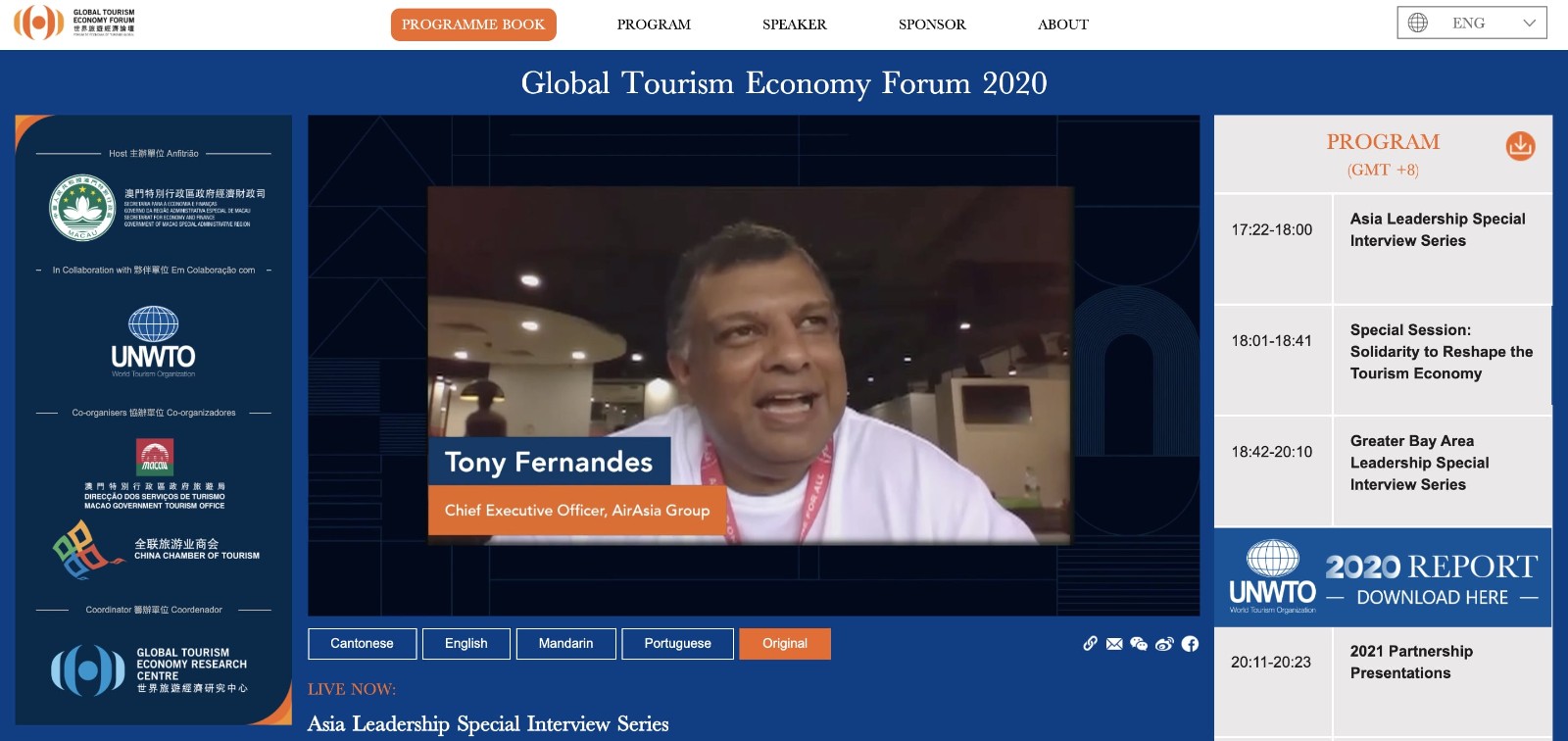2020-12-10
Edith Lu

Air travel throughout the world is expected to return to pre-pandemic levels by the end of 2021, as more international travel will be seen from June, AirAsia Group CEO Tony Fernandes told China Daily on Wednesday. As part of the Asia Leadership Special Interview Series on the Global Tourism Economy Forum, Fernandes sat down with China Daily to share his insights on the survival strategies of the air-travel industry and the recovery of the tourism industry in the current challenging economic climate. Fernandes predicted that airlines’ domestic markets will recover first, and regional passenger travel will follow. He said he expects domestic air travel to return to pre-pandemic levels by February. Fernandes said he has seen a strong recovery in the domestic markets of China, Thailand and Malaysia. When borders are ready to open up, Asia will be in the lead, he added. But given that people may still not be ready to spend dozens of hours sitting in a jetliner cabin, short-haul trips should be more popular than long-haul ones, he said. Fernandes said people in Asia will prefer to take short-haul trips, flying to Phuket, Shenzhen or Macao, rather than Los Angeles or London. Long-distance business travel is likely to continue to suffer, he said. “Business travel is going to be affected for a while. Software such as Zoom has changed the way people work amid COVID-19. In the future, people may not need to travel 14 hours when they can have meetings online,” Fernandes said. The aviation industry globally has been hit hard by the pandemic. International passenger travel has nearly ground to a halt in the past year, and domestic demand was badly affected, with most nations under lockdowns. The International Air Transport Association further downgraded its industry outlook in late November in response to a second wave of coronavirus infections and shutdowns afflicting major markets. It now projects a US$118.5 billion deficit this year alone, and a further US$38.7 billion for 2021. “That’s by far the biggest shock the industry has experienced in the post-World War II years,” IATA Chief Economist Brian Pearce said. Aviation consultancy CAPA predicted in June that “most airlines in the world will be bankrupt” without help. Cathay Dragon, a subsidiary of Hong Kong’s flagship airline, Cathay Pacific, failed to survive the pandemic, and it ceased operations. AirAsia Japan also filed for bankruptcy proceedings last month after its parent, AirAsia Group, cut off aid to the Japanese joint venture. To cope with the financial situation, AirAsia Group had to adjust and restructure and it had lost many employees in the course of that, Fernandes said. “We had to look for temporary financing, which as of yet we haven’t got, but we will come to that position soon. We survived anyway and I think we’ll come out stronger,” he said. “It’s almost like starting again. I started this airline with two planes. I grew to 245 and now it’s like I’m back to the time when I only had two planes. But it’s OK. We’ve tried to turn this massive crisis into a positive situation.” Fernandes said he can see the light at the end of the tunnel with the upbeat news on development of COVID-19 vaccines. “We’ll have vaccines and now we know the test methods of COVID-19. Meanwhile, I believe there are medicines out there, which can make people better,” he said. “Last but not least, we are knowing more about the virus. We know how to treat it. We all wear masks, wash our hands and generally keep social distancing. These things mean that the beginning of the end is starting.” edithlu@chinadailyhk.com